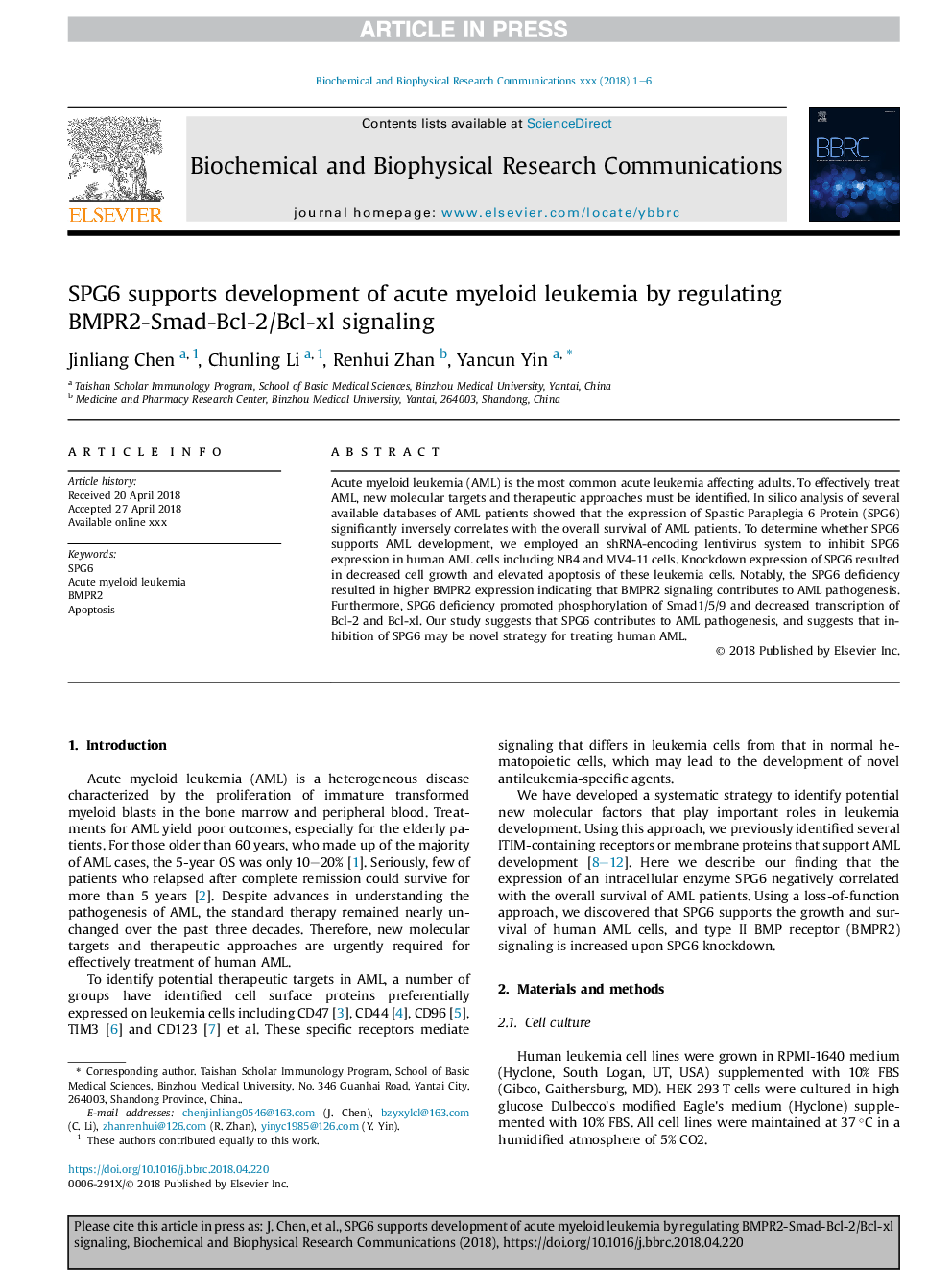| Article ID | Journal | Published Year | Pages | File Type |
|---|---|---|---|---|
| 8292678 | Biochemical and Biophysical Research Communications | 2018 | 6 Pages |
Abstract
Acute myeloid leukemia (AML) is the most common acute leukemia affecting adults. To effectively treat AML, new molecular targets and therapeutic approaches must be identified. In silico analysis of several available databases of AML patients showed that the expression of Spastic Paraplegia 6 Protein (SPG6) significantly inversely correlates with the overall survival of AML patients. To determine whether SPG6 supports AML development, we employed an shRNA-encoding lentivirus system to inhibit SPG6 expression in human AML cells including NB4 and MV4-11â¯cells. Knockdown expression of SPG6 resulted in decreased cell growth and elevated apoptosis of these leukemia cells. Notably, the SPG6 deficiency resulted in higher BMPR2 expression indicating that BMPR2 signaling contributes to AML pathogenesis. Furthermore, SPG6 deficiency promoted phosphorylation of Smad1/5/9 and decreased transcription of Bcl-2 and Bcl-xl. Our study suggests that SPG6 contributes to AML pathogenesis, and suggests that inhibition of SPG6 may be novel strategy for treating human AML.
Keywords
Related Topics
Life Sciences
Biochemistry, Genetics and Molecular Biology
Biochemistry
Authors
Jinliang Chen, Chunling Li, Renhui Zhan, Yancun Yin,
